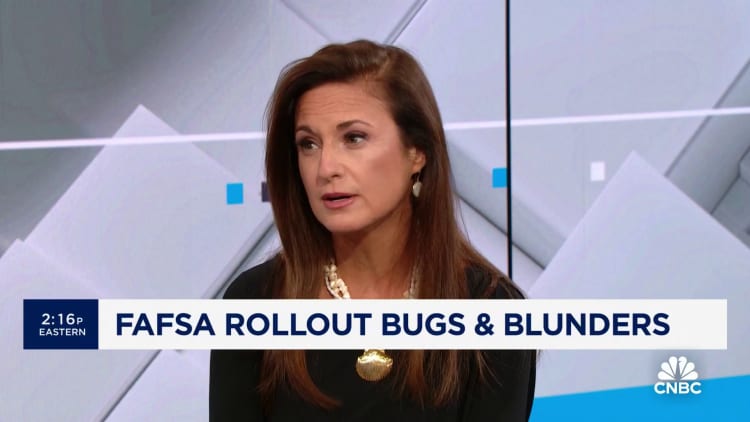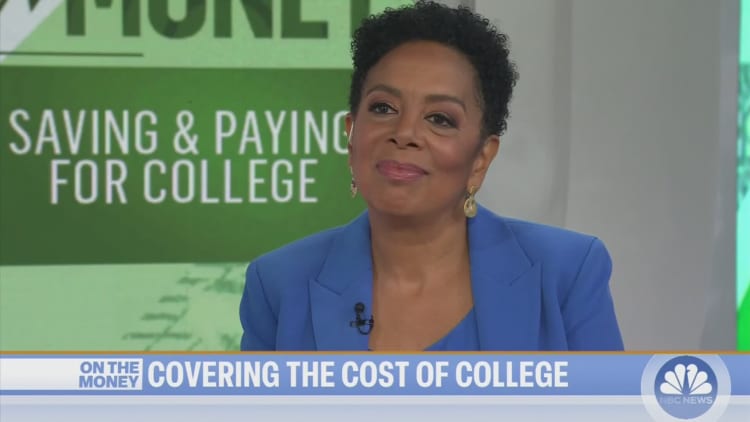College degree earners fall nearly 3%
For the second year in a row, the number of students earning a bachelor’s or associate degree declined, according to a recent report by the National Student Clearinghouse Research Center.
Overall, undergraduate degree earners fell nearly 3% in the 2022-23 academic year — the steepest decline ever recorded, the report found, while bachelor’s degree earners sank to the lowest level in nearly a decade after notching a one-year loss of almost 100,000 graduates.
Meanwhile, the number of students earning a certificate hit a 10-year high, largely due to the growth in vocational programs.
More from Personal Finance:
How to make key college decisions amid FAFSA delays
FAFSA fiasco may cause drop in college enrollment, experts say
This could be the best year to lobby for more college financial aid
“That number of newly minted college graduates has been shrinking,” said Doug Shapiro, executive director of the National Student Clearinghouse Research Center.
Nationwide, enrollment has lagged since the start of the Covid-19 pandemic, when a significant number of students decided against a four-year degree in favor of joining the workforce or completing a certificate program instead.
High schoolers are putting more emphasis on career training and post-college employment, other reports also show.
Now, fewer students are pursuing a four-year degree and more students are stopping out, due to financial constraints, among other factors, Shapiro said.
“Shorter-term certificates have picked up some of the slack, accelerating declines in associate and bachelor’s degree earners mean fewer new college graduates this year.”
Community college pathway is ‘at risk’
Historically, a two-year degree was considered an economical alternative to a bachelor’s, or even a more affordable pathway to a four-year college. These days, the latter is less likely to be the case.
In fact, just 16% of all community college students ultimately attain a bachelor’s degree, according to recent reports by the Community College Research Center at Columbia University, the Aspen Institute College Excellence Program and the National Student Clearinghouse Research Center.
Community college as a stepping stone is “at risk,” Shapiro said, and “that’s very bad news.”
“That escalator… has been one of the most promising, if not always the most successful, paths to access to the bachelor’s degree for lower-income and disadvantaged students,” Shapiro said. “Those students, in particular, will face more challenges.”
(In his budget for fiscal 2025, President Joe Biden proposed expanding access to free community college across the U.S. to make higher education less costly.)
FAFSA issues could also hurt enrollment

Ongoing problems with the new Free Application for Federal Student Aid have also discouraged many high school seniors from applying for the financial aid necessary to afford college. Those that opt out are often low-income students, who stand to benefit most from financial aid and increasingly feel priced out of a postsecondary education.
The FAFSA serves as the gateway to all federal aid money, including loans, work study and grants, the latter of which are the most desirable kinds of assistance because they typically do not need to be repaid.
Submitting a FAFSA is also one of the best predictors of whether a high school senior will go on to college, according to the National College Attainment Network. Seniors who complete the FAFSA are 84% more likely to immediately enroll in college.

As of the latest update, only roughly 7 million 2024-25 FAFSA applications have been submitted and sent to schools, according to the U.S. Department of Education, less than half of the more than 17 million students who use the FAFSA in ordinary years.
Still, it’s too soon to say whether those remaining students will ultimately apply for aid and how that could impact their decisions about college in the fall, according to Sandy Baum senior fellow in the Center on Education Data and Policy at the Urban Institute.
“If students don’t fill it out, some will not go to college,” Baum said.








